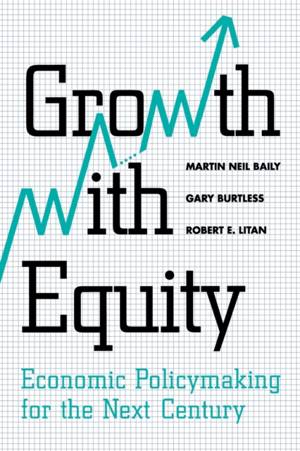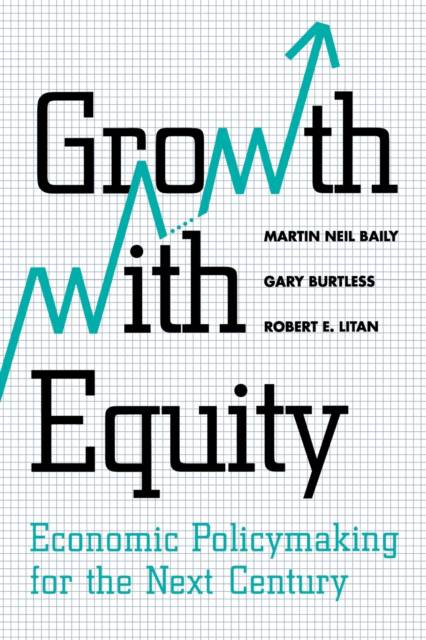
- Retrait gratuit dans votre magasin Club
- 7.000.000 titres dans notre catalogue
- Payer en toute sécurité
- Toujours un magasin près de chez vous
- Retrait gratuit dans votre magasin Club
- 7.000.0000 titres dans notre catalogue
- Payer en toute sécurité
- Toujours un magasin près de chez vous
Growth with Equity
Economic Policymaking for the Next Century
Martin Neil Baily, Gary Burtless, Robert E Litan
Livre broché | Anglais
40,45 €
+ 80 points
Description
For nearly two decades the U.S. economy has been plagued by two disturbing economic trends: the slowdown in the growth rates of productivity and average real wages and the increase in wage and income inequality. The federal budget is in chronic deficit. Imports have far exceeded exports for more than a decade. American competitiveness has been a source of concern for even longer. Many Americans worry that foreigners are buying up U.S. companies, that the economy is losing its manufacturing base, and that the gap between rich and poor is widening. In this book three of the nation's most noted economists look at the primary reasons for these trends and assess which of the many suggestions for change in policy--whether for increased tax incentives for investment, education reform, or accelerated research and development--are likely to work and which may not work and could even hinder economic development. The author's discuss a variety of issues connected with deindustrialization and diminished competitiveness, distinguishing between problems that would be of real concern and those that should not. They evaluate explanations for slow growth in aggregate productivity in the United States and its relation to slower growth in other industrialized countries. They discuss the performance of the various sectors of the U.S. economy and systematically examine the evidence for and against the major proposals for correcting the adverse trends in productivity and inequity. Growth With Equity clearly explains how the country can accomplish the challenge of accelerating growth and narrowing the gap that separates the rich from the poor. While recognizing that some of their recommendations may be politically painful, the authors stress the importance of adopting a purposeful, long-range policy to encourage growth, ensure equity, and reduce the government's equity.
Spécifications
Parties prenantes
- Auteur(s) :
- Editeur:
Contenu
- Nombre de pages :
- 254
- Langue:
- Anglais
Caractéristiques
- EAN:
- 9780815707653
- Date de parution :
- 01-02-93
- Format:
- Livre broché
- Format numérique:
- Trade paperback (VS)
- Dimensions :
- 154 mm x 229 mm
- Poids :
- 340 g

Les avis
Nous publions uniquement les avis qui respectent les conditions requises. Consultez nos conditions pour les avis.






